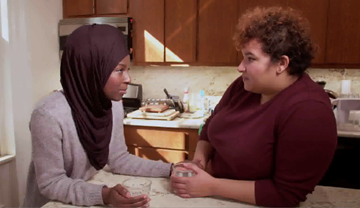HPV Stories
HPV Stories is a suite of evidence-based programs to increase uptake of the HPV vaccine.
Why is this important?
HPV stands for human papillomavirus and is the most common sexually transmitted infection (STI) in the U.S. According to the Centers for Disease Control and Prevention (CDC) 43 million people are currently infected with HPV and approximately 31,500 become infected each year. Infection with HPV is associated with virtually all cervical cancers as well as many other anogenital, penile, oropharyngeal cancers, and other head and neck cancers. According to the CDC, over 4,000 people die from HPV-related cancer each year, and there is an associated cost in the U.S. of $13.1 billion annually with lower SES and minority groups, including African American and Latina women, most negatively impacted by HPV-associated diseases.
What can be done?
Failure to take steps to prevent HPV clearly is costly to people and health systems. There is a vaccine to prevent HPV. Routine vaccination before the age of 12 has been recommended by the Advisory Committee on Immunization Practices and it is now also recommended for older females and males. Unfortunately, vaccine uptake has slowed in the face of vaccine hesitancy.
What are HPV Stories?
Now there is something that can be done about this. The suite of HPV Stories, Parents’ Stories, Women’s Stories, and Men’s Stories has proven effective. In one study it almost doubled the uptake of the vaccine. Now, these programs are available to you. All are brief, all are multicultural, and all present videos shot by an Academy-award winning videographer recreating narratives about decisions to vaccinate, and all work!

Parent’s HPV Stories presents a series of videos recreating narratives from real parents about their decisions to vaccinate their children ages 9-12.

Women’s HPV Stories presents a series of videos recreating narratives from adult women about their decisions to vaccinate.

Men’s HPV Stories presents a series of videos recreating narratives from adult men about their decisions to vaccinate.
Next steps?
These programs can be used individually or in combination. They can be presented in a clinic waiting or exam rooms or by mailing a link to individuals. For more information contact Dr. Michael L. Hecht.

